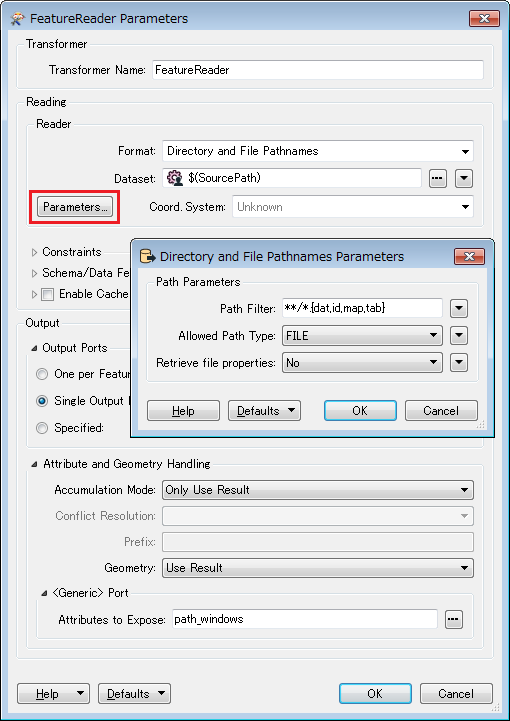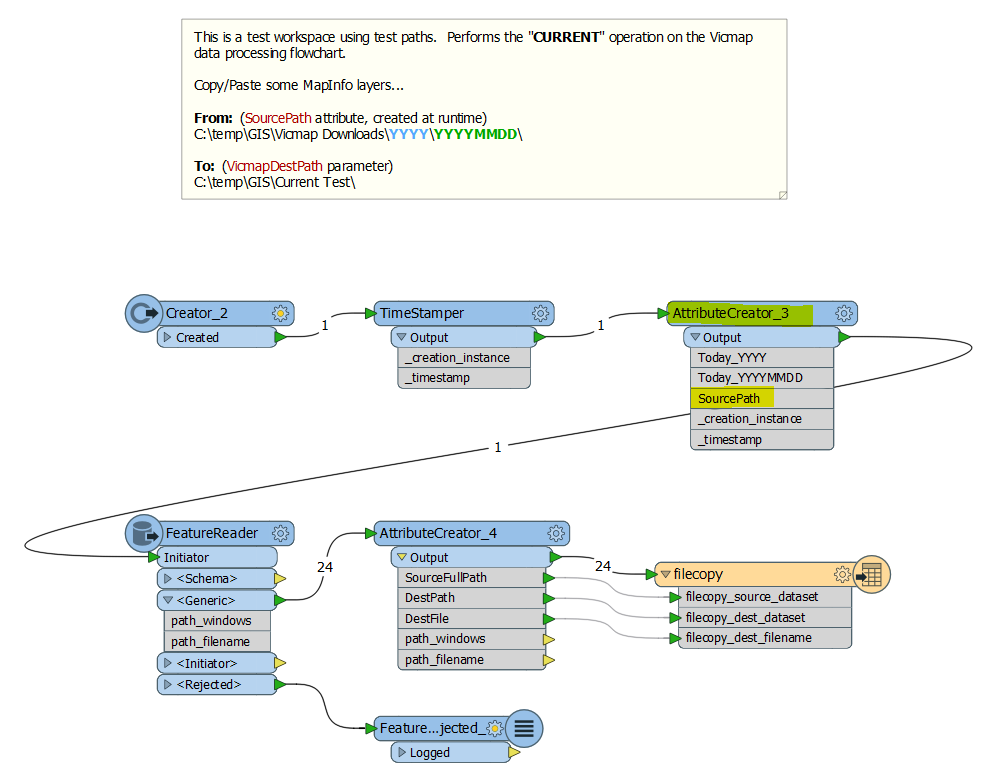I'm having some difficulty trying to use a private parameter as a path for a Data Reader. The difficulty stems from the fact that the value in the parameter is not literal but is calculated at run time (based on date).
The parameter name is SourcePath and its value is a concatenation of a literal string and two other private parameters, which are based on a date. At runtime the value in SourcePath would look something like this:
P:\\GIS Development\\Vicmap_Downloads\\2017\\20170606\\
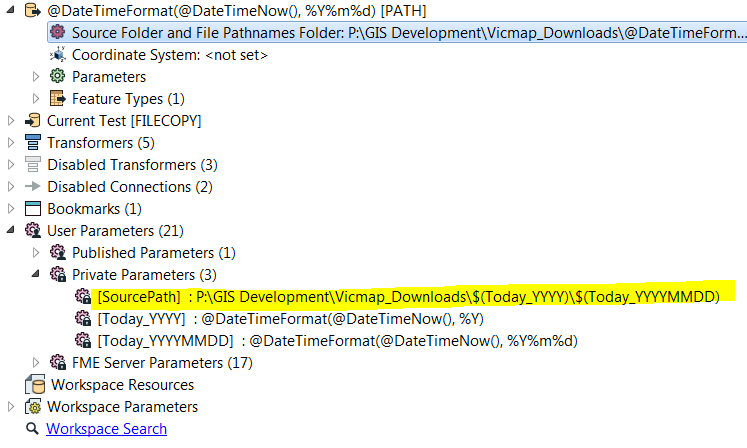
The workspace itself is very simple, consisting of a Directory and File Pathnames Reader, and a corresponding File Copy Writer. The reader obtains a listing of files in the directory, as specified in the SourcePath parameter. It then supplies this list of files to the File Copy Writer to perform the copy/paste.
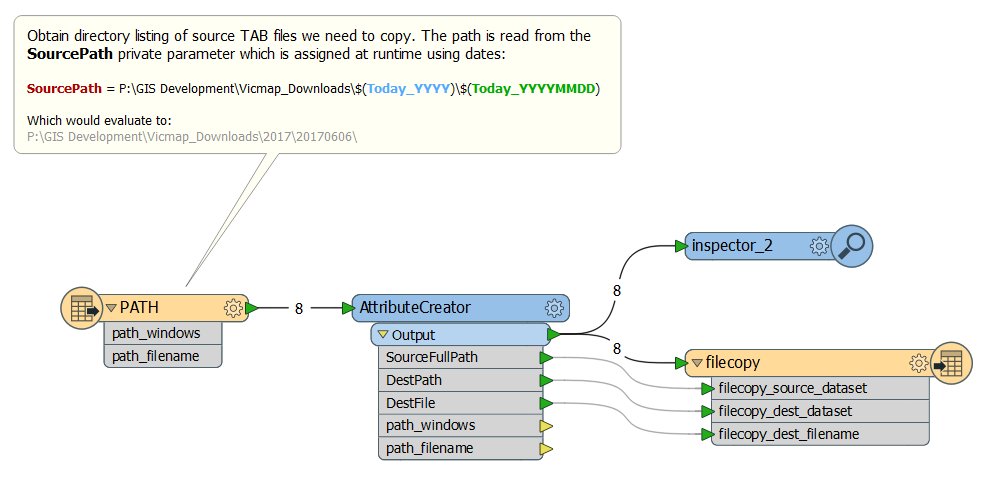
If I set the Data Reader folder path to a literal string then the workspace runs fine. However this is not workable as the path must be determined at runtime because it's based on current date.
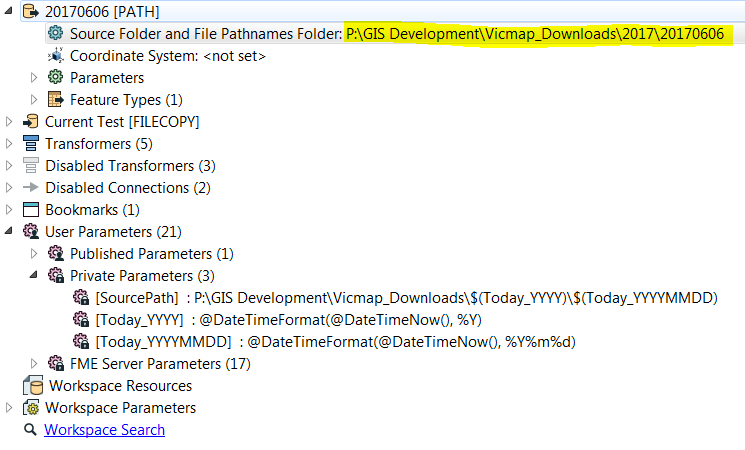
So the question remains: how do I specify a path that is obtained at runtime to a Data Reader?








